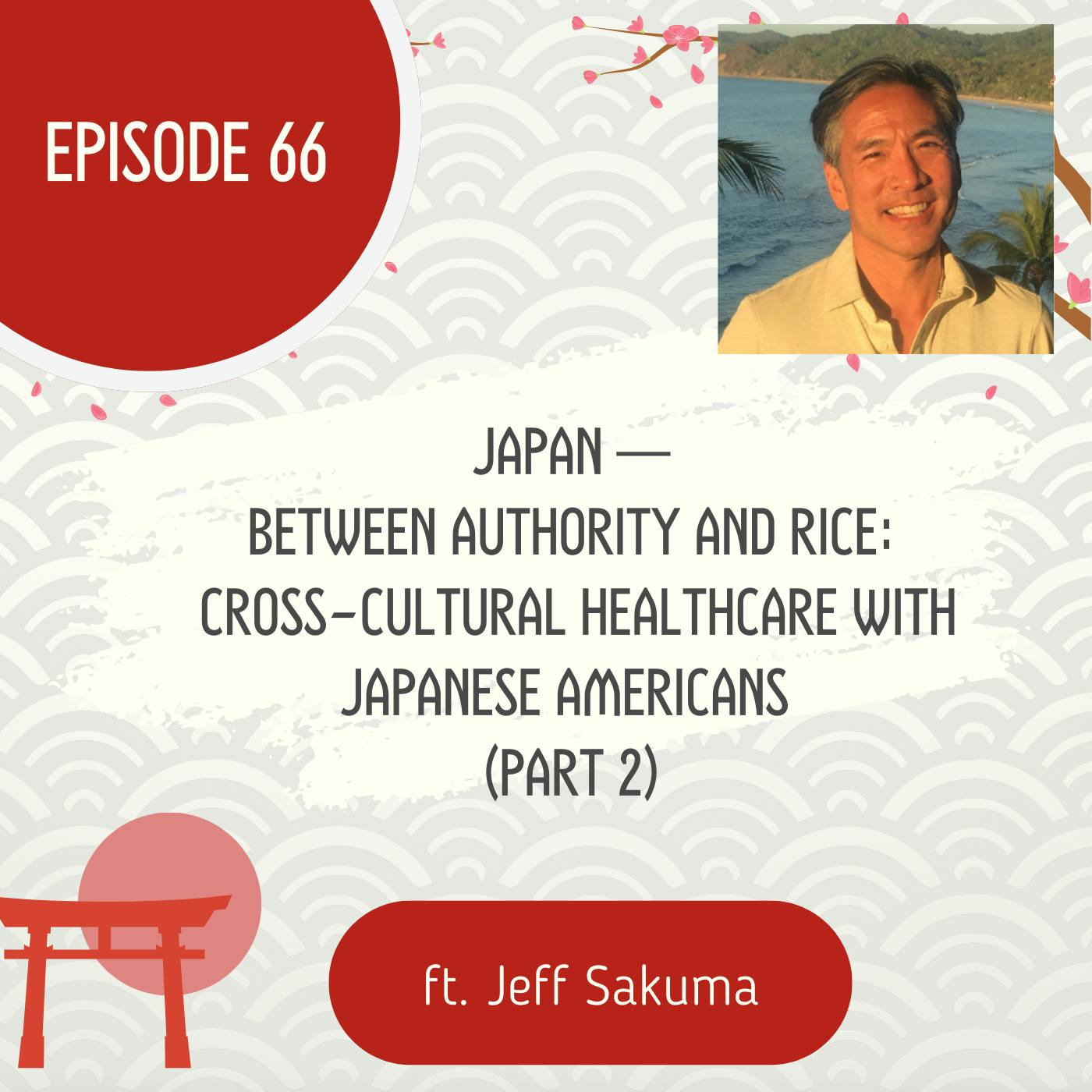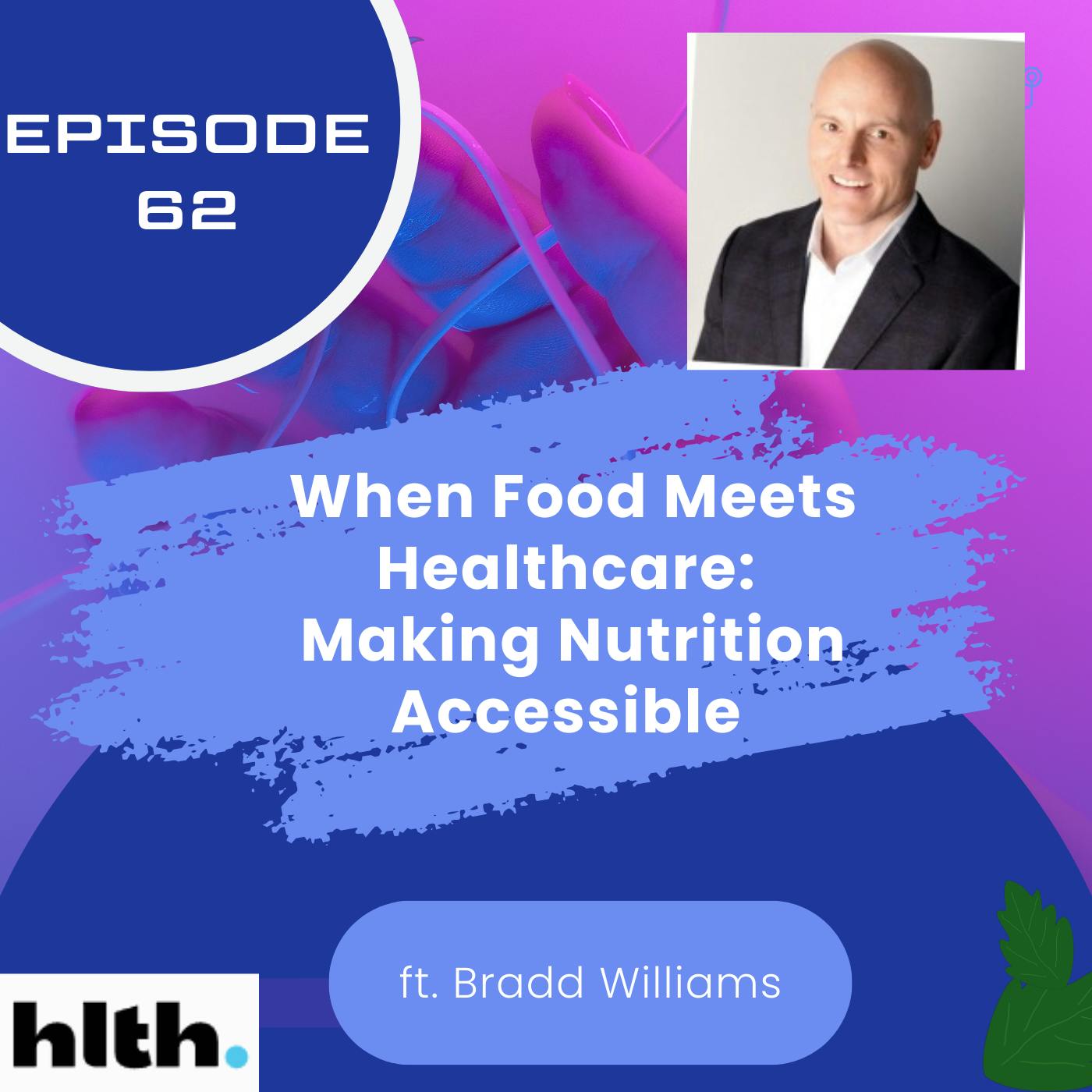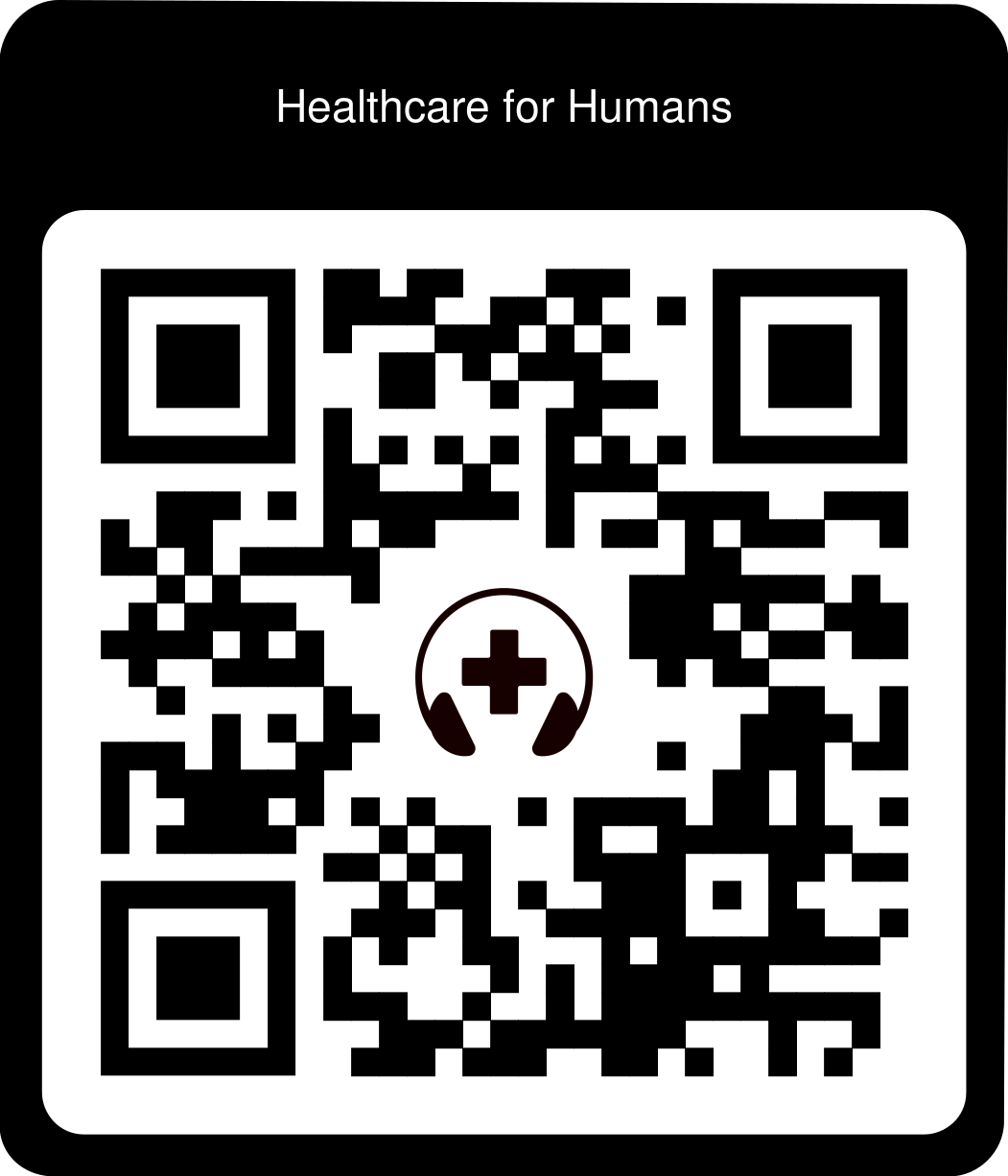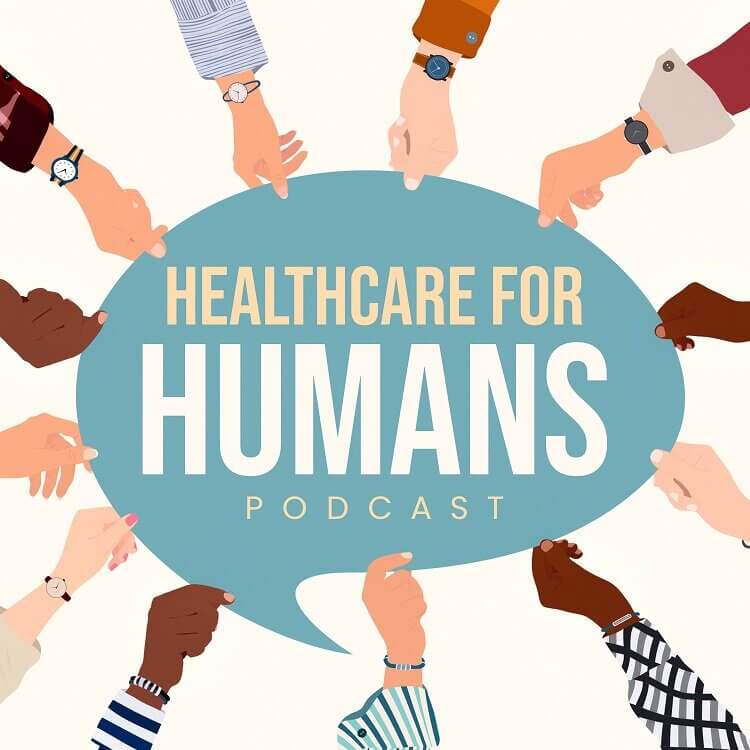
Healthcare for Humans
This show is dedicated to educating clinicians on how to care for culturally diverse communities so we can be better healers.
67 I From Local Voice to Call Center: Healthcare’s Cultural Crossroads w/ Patty Hayward (Talkdesk)
We explore the potential of centralized contact centers in healthcare with Patty Hayward, the general manager of healthcare and life sciences at Talkdesk. Drawing from her extensive experience and personal stories, such as her mother's medical journey, Patty illustrates the critical need for better communication and coordination within healthcare systems. We delve into how centralization, aided by AI and modern technology, could improve patient care by offering timely, personalized interactions and addressing unmet needs in diverse communities. We also tackle how a centralized approach can respect cultural nuances and enhance health education, breaking down barriers to access and understanding.
Overview:
Streamlining Contact Center Efficiency
Automated CRM Conversation Enhancement
Culturally Aligned Contact Centers
Streamlining Healthcare Access Challenges
Reaching Unreached Populations Effectively
Proactive Outreach with Real-Time Translation
Next Step:
Visit our website, Healthcare for Humans, and join our community to enjoy exclusive benefits at https://www.healthcareforhumans.org/support/
Support Our Mission: Non-clinicians, explore exclusive content and contribute to our collective journey.
Be an Active Participant: Go beyond listening. Shape our narrative by co-creating episodes with us.
Be part of our community by visiting https://www.healthcareforhumans.org/support/. Follow us on Instagram @healthcareforhumanspodcast
March 17, 2025
66 I Japan — Between Authority and Rice: Cross-Cultural Healthcare with Japanese Americans
We explore the complexities of Japanese food culture and its impact on health, addressing how American influences have altered traditional diets. Jeff discusses the importance of rice in Japanese meals and his personal transition to healthier rice options. We delve into portion control within Japanese dining customs and the concept of intuitive eating. The conversation shifts to Japanese cultural nuances, including language, religion, and familial expectations, emphasizing the importance of acknowledging expertise both in healthcare and family matters. Additionally, we discuss the role of social support systems, religious influences, and the cultural dynamics surrounding aging and caregiving in Japanese American communities.
Overview:
Transition from Short to Long Grain Rice
Exploring Cultural Elements
Patterns and Power in Interactions
Japanese American Religious Identity
Japanese American Family Care Traditions
Keirog Japanese Nursing Home Closur
Navigating Uncertainty in Medical Decisions
"Evaluating Two Treatment Choices"
Next Step:
Visit our website, Healthcare for Humans, and join our community to enjoy exclusive benefits at https://www.healthcareforhumans.org/support/
Support Our Mission: Non-clinicians, explore exclusive content and contribute to our collective journey.
Be an Active Participant: Go beyond listening. Shape our narrative by co-creating episodes with us.
Be part of our community by visiting https://www.healthcareforhumans.org/support/. Follow us on Instagram @healthcareforhumanspodcast
March 4, 2025
65 I Japan — Why History Lives in the Exam Room w/ Jeff Sakuma (Part 1)
We delve into the fascinating journey of Japanese Americans in Washington State, welcoming guest Jeff, who shares his personal and family history. We discuss the generational terms used within the Japanese American community and how historical events like the Meiji restoration influenced immigration to the United States. Particularly moving is the narrative of Japanese internment during World War II and its significant impact on Jeff's family, highlighting the broader implications of shame and resilience in the face of injustice. We explore the concept of the "model minority" and its roots in the post-war era, with Jeff offering a critical perspective on its implications for Japanese Americans. Our conversation touches on the power of government apologies and reparations, shedding light on the complex relationship between historical events and modern cultural dynamics among Japanese Americans.
Overview:
From HIV Work to Health Strategist
Japanese Immigrant Family Histories
Cultural Understanding and Historical Reflections
WWII Japanese American Internment Journey
Post-War Japanese Honor and Success
Racism, Resilience, and Justice
Immigration Policy's Generational Impact
Cultural Nuances Across Locations
Next Step:
Visit our website, Healthcare for Humans, and join our community to enjoy exclusive benefits at https://www.healthcareforhumans.org/support/
Support Our Mission: Non-clinicians, explore exclusive content and contribute to our collective journey.
Be an Active Participant: Go beyond listening. Shape our narrative by co-creating episodes with us.
Be part of our community by visiting https://www.healthcareforhumans.org/support/. Follow us on Instagram @healthcareforhumanspodcast
February 20, 2025
64 I Trauma-Informed Care for FGM/C (Part 2) — Community Engagement and Survivor-Centered Strategies From (Sahiyo)
We welcome Samman, the community engagement coordinator at Sahiyo, to discuss the ongoing efforts to address and prevent female genital mutilation/cutting (FGMC) within the South Asian Bora community and beyond. She provides insight into the importance of using appropriate terminology like FGM/C to foster dialogue and reduce stigma. We explore the prevalence of FGM/C in the United States, countering the misconception that it's only practiced elsewhere. The conversation delves into understanding FGM/C as a social norm, exploring interventions and supports such as trauma-informed care and peer support networks.
Additionally, we discuss the role of youth advocacy, storytelling, and the importance of comprehensive education in driving change. The episode also highlights SAYO's efforts to amplify the voices of survivors and work with communities and policymakers to effectively address and prevent FGMC.
Overview:
00:00 FGM/C Term Debate
06:10 Framing FGMC as a Social Norm
08:17 "Promoting Trust in FGM/C Education"
11:34 Trauma-Informed Care Fundamentals
15:33 "Survivor Support Through Storytelling Networks"
22:54 Digital Activism on Human Rights
26:19 Advocacy Programs for Ending FGMC
27:29 Virtual FGMC Activist Retreat Expansion
Resources
FGM/C Response in Washington State
GWU FGM/C Toolkit
Voices to End FGM/C Resources
Sahiyo - United Against Female Genital Cutting - Home
Next Step:
Visit our website, Healthcare for Humans, and join our community to enjoy exclusive benefits at https://www.healthcareforhumans.org/support/
Support Our Mission: Non-clinicians, explore exclusive content and contribute to our collective journey.
Be an Active Participant: Go beyond listening. Shape our narrative by co-creating episodes with us.
Be part of our community by visiting https://www.healthcareforhumans.org/support/. Follow us on Instagram @healthcareforhumanspodcast
February 4, 2025
63 I Trauma-Informed Care for FGM/C Survivors: Lessons from Isatou and Joanna
We delve into the sensitive and impactful topic of Female Genital Mutilation/Cutting (FGM/C) in a compelling two-part series, highlighting its prevalence among over 230,000 women and girls in the US, particularly in the Seattle-Tacoma-Bellevue area. Host Dr. Raj Sundar shares a personal story about discovering a case of Type 3 FGM in a prenatal patient, underscoring the need for trauma-informed care. Our guest, Isatou Jallow, a Gambian FGM/C survivor, shares her harrowing experiences and advocacy journey, reflecting on the cultural stigma and her positive encounters with empathetic healthcare providers in the US. Dr. Joanna Stevens, from the Washington Coalition to End FGMC, joins the discussion to offer insights into caring for FGM-affected women and the coalition’s legislative and educational efforts. We address the cultural, religious, and emotional dimensions of FGM/C, emphasizing the importance of sensitivity, respect, and effective communication, including the challenges posed by interpreter biases. Ultimately, we advocate for culturally responsive care to improve patient outcomes and foster community dialogue and support systems.
Overview:
04:19 Washington State advances FGM laws, Isatou's advocate story.
06:38 Left Gambia, discovered type 3 FGM here.
11:24 Respect terminology preferences for discussing FGM.
15:30 Pain, marginalization, confusion in cultural practices.
17:35 Advocating against FGM, creating supportive women's circles.
21:56 Engage community leaders to combat FGM practices.
25:42 Interpretation issues: watch body language and communicate.
Resources
FGM/C Response in Washington State
GWU FGM/C Toolkit
Voices to End FGM/C Resources
Behind the Wall - Isatou Jallow
Next Step:
Visit our website, Healthcare for Humans, and join our community to enjoy exclusive benefits at https://www.healthcareforhumans.org/support/
Support Our Mission: Non-clinicians, explore exclusive content and contribute to our collective journey.
Be an Active Participant: Go beyond listening. Shape our narrative by co-creating episodes with us.
Be part of our community by visiting https://www.healthcareforhumans.org/support/. Follow us on Instagram @healthcareforhumanspodcast
January 14, 2025
62 I When Food Meets Healthcare: Making Nutrition Accessible with Bradd Williams
We welcome Bradd Williams, a seasoned healthcare professional with over 25 years of experience, who currently works at Homestyle Direct, a medically tailored meal provider. Exploring the intersection of food, health, and equity, we discuss how eliminating food deserts and delivering nutritious meals can improve chronic health conditions, particularly for underserved populations. Bradd shares insights into his company's mission to provide not just meals but dignity and love through diverse, culturally responsive menu options tailored by registered dietitians. We delve into the company’s efforts in addressing both rural and urban food insecurities, emphasizing the importance of providing equitable access to nutrition as a fundamental human right. Tune in to understand how Homestyle Direct is making strides in healthcare through food, incorporating seasonality, recognizing cultural preferences, and ensuring every patient feels valued and heard.
Overview:
04:19 Seasonal, affordable frozen produce ensures quality meals.
07:15 Promoting healthier choices with familiar foods.
10:42 Treat everyone fairly, ensure access to resources.
Next Step:
Visit our website, Healthcare for Humans, and join our community to enjoy exclusive benefits at https://www.healthcareforhumans.org/support/
Support Our Mission: Non-clinicians, explore exclusive content and contribute to our collective journey.
Be an Active Participant: Go beyond listening. Shape our narrative by co-creating episodes with us.
Be part of our community by visiting https://www.healthcareforhumans.org/support/. Follow us on Instagram @healthcareforhumanspodcast
January 2, 2025
61 I The Hidden Equity Gap: How Outdated Tech Hurts Healthcare Access with Bevey Miner
We delve into the critical topic of fax machines and their surprising impact on health equity with Bevey Miner, a seasoned expert in healthcare technology. Drawing from over two decades of experience, Bevey illuminates the complexities of healthcare data sharing and the disparities marginalized communities face due to outdated technologies like fax machines. We explore the challenges of interoperability, the necessity of structured data for meaningful analytics, and the importance of tech equity in bridging the gaps in healthcare access and outcomes. From discussing digital cloud faxing solutions to advocating for policy changes, we highlight the intersection of technology and health equity, urging for a unified approach to data sharing that includes all healthcare providers and patients.
Overview:
00:00 EHR incentives neglected behavioral health and upgrades.
05:07 Implement translation technologies, output as FHIR resource.
09:00 Structured data enables effective health outcome analysis.
12:06 Tech equity funding needed for healthcare databases.
Resources:
Consensus Solutions
Next Step:
Visit our website, Healthcare for Humans, and join our community to enjoy exclusive benefits at https://www.healthcareforhumans.org/support/
Support Our Mission: Non-clinicians, explore exclusive content and contribute to our collective journey.
Be an Active Participant: Go beyond listening. Shape our narrative by co-creating episodes with us.
Be part of our community by visiting https://www.healthcareforhumans.org/support/. Follow us on Instagram @healthcareforhumanspodcast
December 30, 2024
60 I Transforming Cardiometabolic Care: Innovation Meets Equity with Dr. Avantika Waring
We welcome back Dr. Avantika Waring from 9 AM Health to discuss her vision for cardiometabolic care, emphasizing equity in treating diabetes, obesity, hyperlipidemia, and hypertension through innovative virtual models. Dr. Waring highlights the importance of a diverse workforce in delivering culturally relevant care and addressing structural inequities. We delve into the challenges of making medications like semaglutide accessible to all, the complex interplay of diet, environment, and genetics, and the need for family-inclusive health interventions. Through thoughtful conversation, we explore how equitable access to healthcare can transform patient outcomes and the importance of addressing both medical and social determinants of health.
Overview:
00:00 Prioritizing diverse hires for company growth.
03:18 Effective self-managed care essential for lifelong health.
07:56 Employer equity improves health access through insurance.
10:04 Promote family health literacy despite economic challenges.
Next Step:
Visit our website, Healthcare for Humans, and join our community to enjoy exclusive benefits at https://www.healthcareforhumans.org/support/
Support Our Mission: Non-clinicians, explore exclusive content and contribute to our collective journey.
Be an Active Participant: Go beyond listening. Shape our narrative by co-creating episodes with us.
Be part of our community by visiting https://www.healthcareforhumans.org/support/. Follow us on Instagram @healthcareforhumanspodcast
December 26, 2024
Healthcare for Humans
My name is Dr. Raj Sundar, a family physician and community organizer. This is an independent project that I created, so I can become a better healer to the many different communities that I care for. Like many of you, I've fallen short in caring for and healing many of my patients, especially when their values and beliefs seem foreign to me.
We all have felt those large gaps between our agenda as clinicians and the lives of our patients.
These gaps, sometimes an abyss, are exacerbated by our contemporary systems. This show is my creative power restive and uprising to help address this gap. In this podcast, as I learn, I hope to educate clinicians on how to care for culturally diverse communities so we can all be better healers for all patients, no matter who they are. I hope this podcast re-orients us to what's important to our patients and how they came to be where they are now.
By better understanding their worldview, we can better care for those patients we struggle to help, within the context of their own struggle, and thereby, even ameliorate our own struggle.
Thank you for joining me on this journey.
We all have felt those large gaps between our agenda as clinicians and the lives of our patients.
These gaps, sometimes an abyss, are exacerbated by our contemporary systems. This show is my creative power restive and uprising to help address this gap. In this podcast, as I learn, I hope to educate clinicians on how to care for culturally diverse communities so we can all be better healers for all patients, no matter who they are. I hope this podcast re-orients us to what's important to our patients and how they came to be where they are now.
By better understanding their worldview, we can better care for those patients we struggle to help, within the context of their own struggle, and thereby, even ameliorate our own struggle.
Thank you for joining me on this journey.
Host
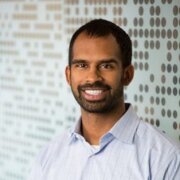
Raj Sundar, MD
Raj Sundar is a family physician and a community organizer, dedicated to creating systems that prioritize the dignity of each individual.
His leadership approach is rooted in enabling and facilitating others to achieve a shared purpose, and his goal is to contribute to the creation of institutions and communities that are diverse, equitable, and inclusive by honoring people's histories and uplifting their hopes.
He strives to empower others to create meaningful change and cultivate conditions that enable individuals to flourish.
His leadership approach is rooted in enabling and facilitating others to achieve a shared purpose, and his goal is to contribute to the creation of institutions and communities that are diverse, equitable, and inclusive by honoring people's histories and uplifting their hopes.
He strives to empower others to create meaningful change and cultivate conditions that enable individuals to flourish.

